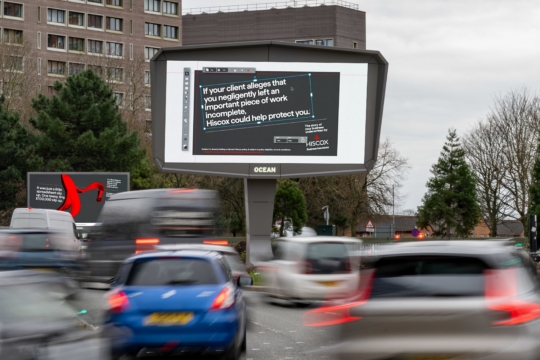

Climate tech start-ups Doconomy and Kayrros have launched ‘The 2030 Forecast’, a first of its kind climate literacy initiative that uses outdoor digital displays to show a weekly snapshot of carbon emissions footprint from energy, industry, road transportation and domestic aviation.
The initiative is supported by a campaign displaying the UK’s C02e emissions on some of Ocean’s digital roadside screens in traffic hotspots across London this week as part of London Climate Action Week.
The formal launch of the 2030 Forecast platform took place during the World Environment Day on June 5 with near real-time national emissions data displayed publicly on the streets of Stockholm for the first time.
The initiative aims to track progress towards 2030 emissions-reduction targets, based on the belief that environmental emissions data should be available to everyone. Doconomy and Kayrros want to raise awareness and promote a sense of collective responsibility.
Johan Pihl, chief innovation officer at Doconomy, said: “The public deserves to be aware of our actual progress in achieving the emissions reduction goals. The 2030 Forecast marks the first step towards making the connection between an individual’s carbon footprint and the environmental impact of industrial emissions. At first, the national emission figures might be difficult to grasp, but we are confident that our collective climate literacy will improve over time.”
Ocean chief marketing officer Richard Malton said: “This campaign is a fantastic use of creative data that is on par with our focus as a business on sustainability. Digital out of home is the perfect medium to improve societal climate literacy.”
To create the ‘2030 Forecast’, Doconomy partnered with energy and climate-focused data analytics firm, Kayrros, which analyses satellite images and other data sources to track environmental metrics.
Working with the European Space Agency (ESA) and France’s National Centre for Space Studies, Kayrros leverages artificial intelligence and advanced mathematics to extract timely, actionable signals on greenhouse gas emissions from earth-observation sensors and other sources.
Earlier this year, annual emissions data for 2021 from the European Commission confirmed the accuracy of Kayrros Carbon Watch measurements produced daily over the course of the year, covering CO2e emissions from power plants, industry, and domestic air transport.
Antoine Rostand, co-founder, and President of Kayrros, said: “We are incredibly excited about this partnership, which brings Kayrros data from the corporate sphere to the consumers’ fingertips. Our ability to address climate change collectively and efficiently hinges on the public’s awareness of what makes our footprint bigger or smaller. Climate literacy and data transparency are key to ensuring that we make the right decisions not just in public policy and corporate practices, but also in our everyday life.”
Members of the public can visit www.2030forecast.com to learn more about the project and find out how to get involved. News organisations and media platforms are also invited to apply to license and broadcast the live national carbon emissions data, as part of a bigger plan to disseminate national emission levels on public channels.
It is hoped that ‘2030 Forecast’ will increase the level of transparency and discussion about emissions and foster a sense of shared responsibility between individuals and corporations to accelerate climate action and bend the climate curve.






